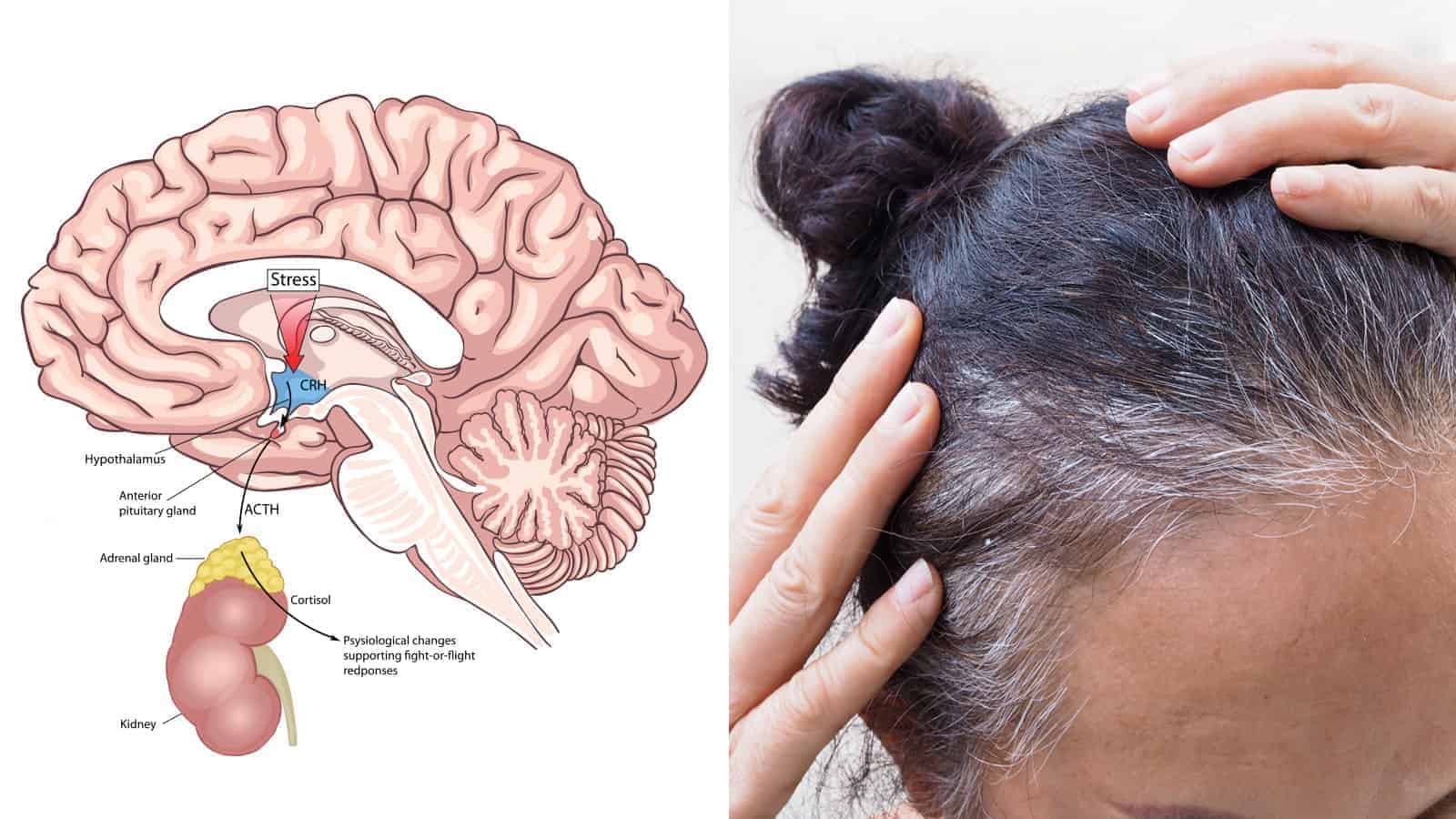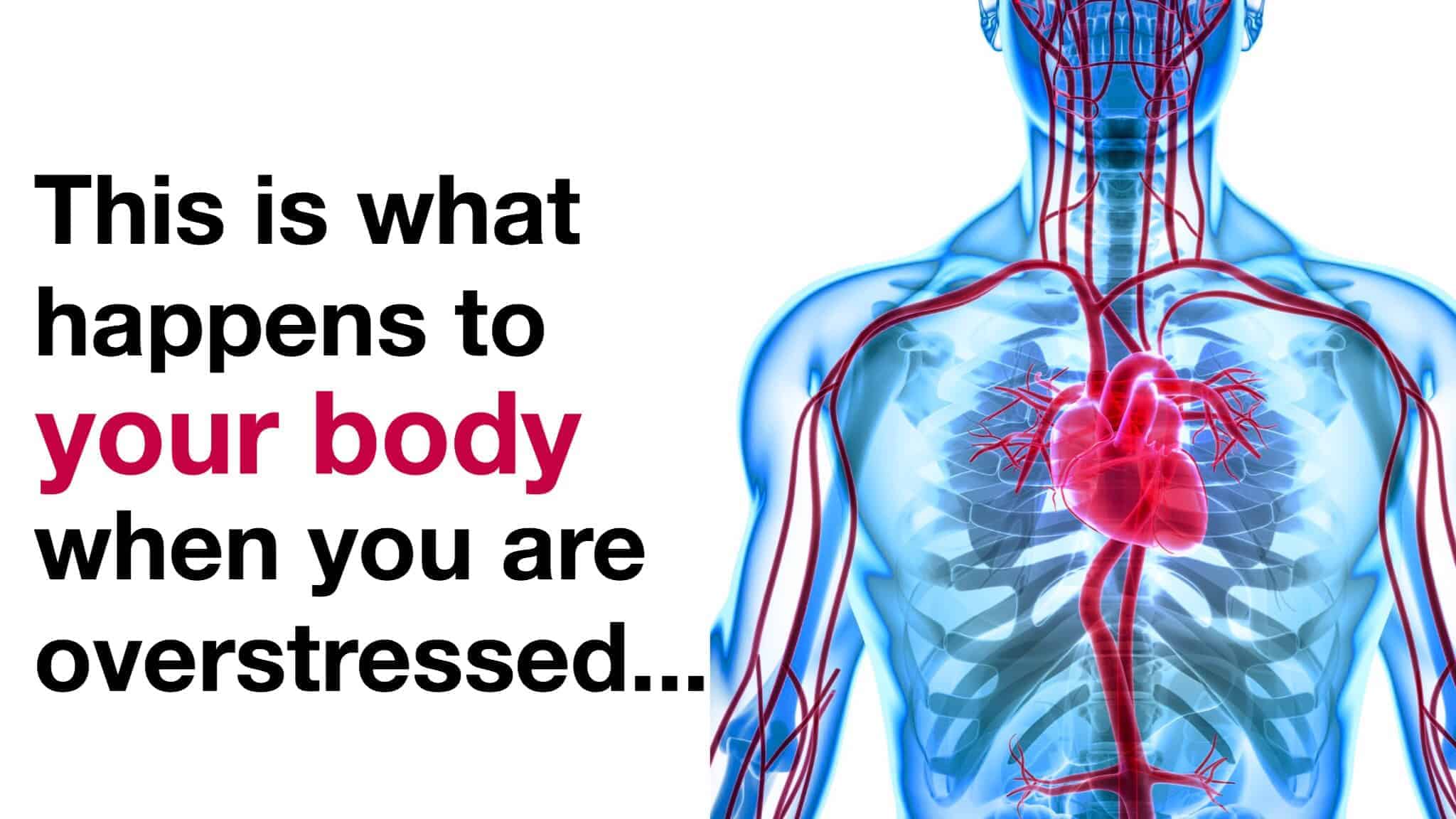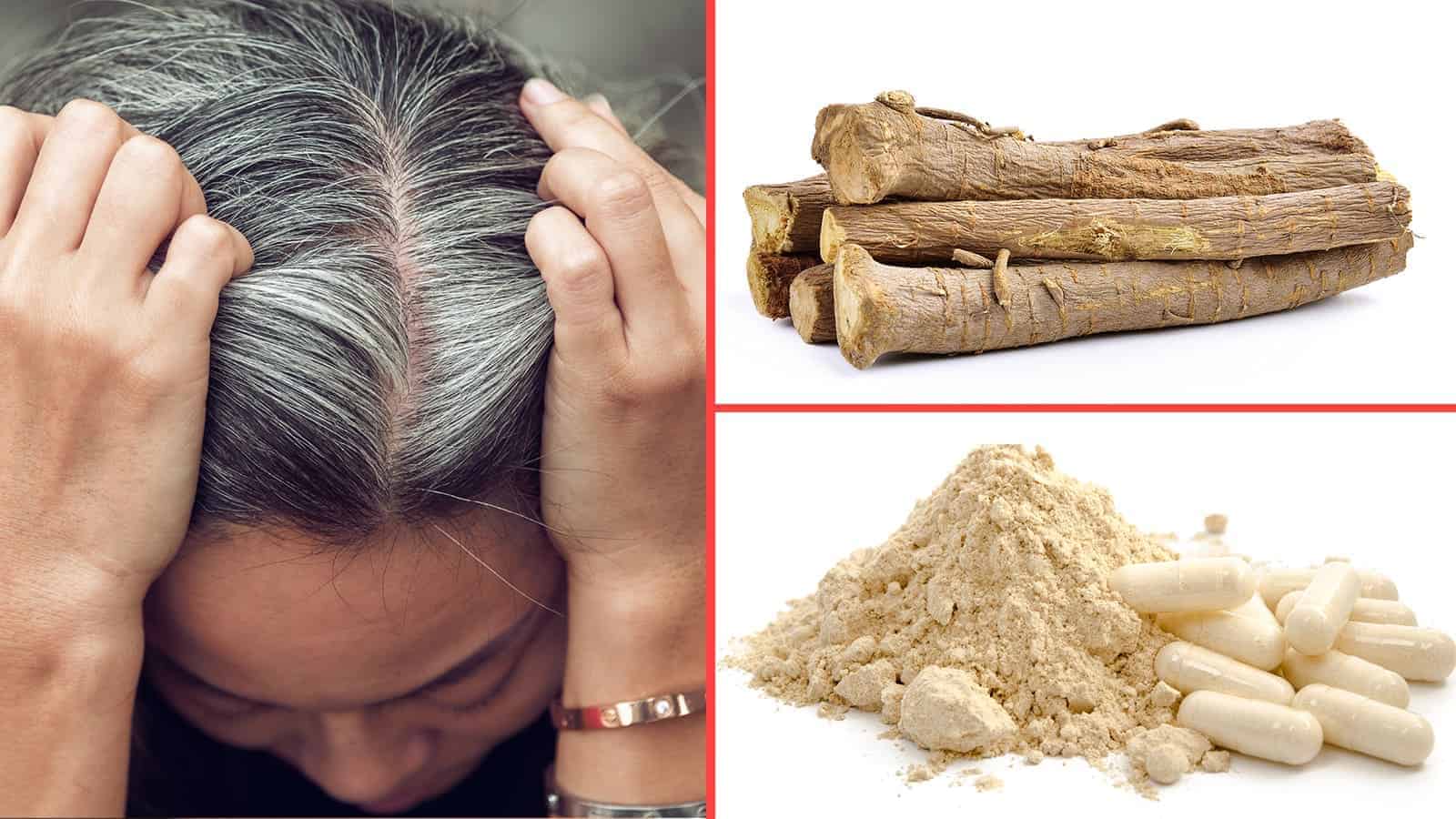Researchers now find a strong link between stress and premature gray hair. They believe that graying hair may have something to do with the fight or flight response in our body. However, genetics also plays a significant part in the early appearance of gray hair. A study published in Nature suggests that stress and gray hair go hand in hand.
Melanocytes determine our hair color as they produce the pigment melanin. Melanocyte stem cells that live inside the hair follicle at the bottom of the hair strand produce new melanocytes; however, as we age, these stem cells start to disappear. The hair that regrows from follicles that lost melanin has less pigment and therefore looks gray.
Researchers recently proved how stress could accelerate this process, making gray hair appear far earlier than if just aging had been a factor. Below, we’ll talk more about this study as well as ways to prevent premature gray hair from appearing.
Science explains the association between stress and gray hair:
New research from Harvard University in Massachusetts reveals why stress can promote gray hair at earlier ages. The Harvard research team, under the leadership of Dr. Ya-Chieh Hsu of Boston’s Harvard University, used mice to observe how stress could potentially cause gray hair. They exposed mice to three types of stress: mild, short-term pain, psychological stress, and restricted movement. Scientists observed a significant decrease in melanocyte stem cells and an increase in gray hair from all methods.
They then wanted to discover why stress caused premature gray hair in mice. First, they tested whether the immune system could cause the depletion of melanocyte stem cells. However, they found that even the mice with lower immune systems had more gray hair after exposure to stress. Also, they looked into the role of the stress hormone corticosterone, but adjusting its levels didn’t cause changes in the graying of hair.
The role of the adrenal glands
They finally looked at the neurotransmitter noradrenaline, which increased in mice, and corticosterone. The research team found that this chemical, also known as norepinephrine, caused the most significant increase in the graying of hair in the mice. Scientists injected the mice with noradrenaline and observed a decrease in melanocyte cells and an increase in gray hair.
The adrenal glands mostly produce norepinephrine, but mice without adrenal glands still showed signs of stress-related graying of hair. Noradrenaline plays a considerable part in activating the sympathetic nervous system, which causes the fight-or-flight response when exposed to stress.
The sympathetic nervous system
The team found that when the sympathetic nervous system becomes activated, it plays a significant role in stress-induced graying. Each hair follicle contains these nerves, so, during periods of stress, noradrenaline gets released and depletes the hair of color. Millions of these nerves can be found all over the body, so you can imagine how long-term stress negatively affects the mind and body.
Under normal conditions, the melanocyte stem cells in each follicle remain inactive until a new hair comes in, but noradrenaline activates the cell. Using fluorescent labeling, the researchers observed the stem cells change to melanocytes and move away from reserves in the follicles. When stem cells disappear, no pigment is made, so the hair turns gray and white.
Summary, according to the lead scientist.
The lead study author and an associate professor of stem cell and regenerative biology at Harvard, Ya-Chieh Hsu, Ph.D., said that stress caused more bodily harm than they could’ve imagined.
“After just a few days, all of the pigment-regenerating stem cells were lost. Once they’re gone, you can’t regenerate pigments anymore. The damage is permanent,” he said.
Why do we get gray hair?
Genetics plays the most extensive role in the likelihood of premature graying of hair, followed by stress. Smoking also contributes to gray hair, according to a 2013 study. This shouldn’t come as a surprise, as smoking puts enormous strain on the body’s organs, such as the heart, liver, and lungs. Vitamin and mineral deficiencies, such as protein, B12, copper, and iron, can also cause gray hair.
Aging also causes gray hair due to increased oxidative stress caused by an accumulation of free radicals in the body. These have the potential to damage your DNA, tissues, and proteins. Of course, we can’t prevent aging or gray hair at some point, but we can do our bit to keep our bodies and minds healthy. This will allow us to enjoy a little color in our hair for extended periods, and save money on expensive hair dyes!
Every decade after age 30, people usually have about a 10 percent increase in the likelihood of developing gray hair. If you eat a diet high in fatty acids from foods such as walnuts and oily fish like salmon, plus take a multivitamin and avoid long periods in the sun, you can prevent premature graying of hair.
Future research
Since the Harvard study only involved mice, they want to replicate these results in humans to solidify their research. However, we can use this research to understand how stress impacts the body in various ways. Stress can cause more severe problems in the body than just gray hair, from heart attacks to strokes to impaired mental health.
“By understanding precisely how stress affects stem cells that regenerate pigment, we’ve laid the groundwork for understanding how stress affects other tissues and organs in the body,” said Hsu.
“Understanding how our tissues change under stress is the first critical step towards eventual treatment that can halt or revert the detrimental impact of stress. We still have a lot to learn in this area.”
Preventing gray hair
So now that you know how stress can lead to gray hair, we’ll talk more about ways to prevent it. Here are just a few:
-
Destress in whatever way that resonates with you.
Whether you enjoy meditation, listening to relaxing music, doing yoga, gardening, or going on walks through Nature, make sure you take time to destress each day. After a long day at work or school, your mind and body need to recharge and detox from any negative energy you encounter.
-
Eat a healthy, balanced diet.
As we said above, getting plenty of healthy fats from fish and walnuts, protein from quinoa or meats, and lots of vitamins from fruits and veggies will do your body good. Fruits and vegetables have many antioxidants, which will help keep your hair vibrant and healthy for longer.
-
Drink plenty of water.
Many people don’t get enough water and suffer from chronic dehydration. Water helps hydrate all of our cells, including the ones in our hair. Make sure you drink at least one gallon a day in order to keep your body functioning correctly and enhance your immune system.
-
Get a little sunshine each day.
Everyone needs at least 30 minutes of direct sunshine each day to absorb Vitamin D. Go out at sunrise or sunset so you don’t get sunburned, and don’t wear any sunscreen, as this will block absorption of the vitamins.
-
Keep your mind positive.
Above all else, this may impact your health more than anything on this list. Having a constantly negative mindset can increase your stress levels and eventually lower your immune system. The more you focus on gratitude, kindness, self-love, and peace, the more you will see these qualities reflected in your life.
-
Surround yourself with positive people.
You want to keep people in your life with noble, positive qualities. You become like the people you surround yourself with, so to keep your frequency high, only associate with those who have qualities you respect. If you must deal with negative people, don’t allow them to lower your vibration. However, please don’t spend too long around them, as they will start to rub off on you after a while.
Final thoughts on how stress can cause gray hair
Many things in life can contribute to stress. But we each have the power within ourselves to choose how to respond to it. If you remain calm no matter what you encounter outside yourself, you will win against stress every single time. Stress begins in the mind. So resolve today to remain balanced in your mind, and nothing will get to you.
Stress causes gray hair because it activates the sympathetic nervous system, which depletes stem cells that create melanin. When these stem cells decrease in the body, it leads to the eventual appearance of gray or white hair. To protect yourself against gray hair, take care of your mental and physical health.
Eat well, exercise, get sunshine, drink enough water, and get enough sleep. Surround yourself with positive people, and follow a destress routine such as meditation or yoga. We have the power within us to get rid of stress now, if we would only tap into our inner power and wisdom.

















 Community
Community

